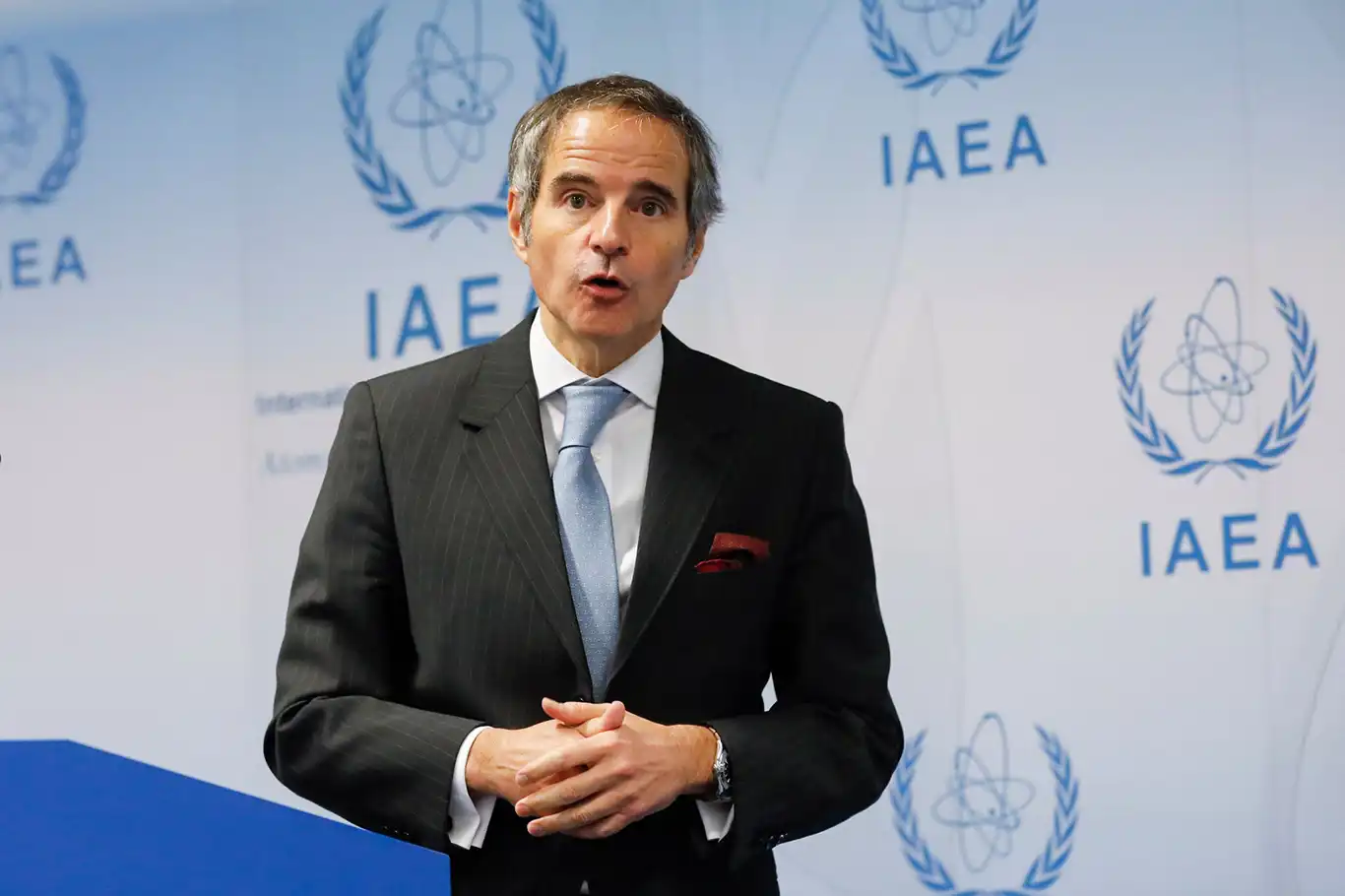IAEA confirms Iran's nuclear resilience as Tehran pledges recovery from U.S. aggression


Despite devastating U.S. and Israeli airstrikes in June targeting Iran’s peaceful nuclear infrastructure, the Islamic Republic retains the resilience and expertise to advance its scientific program, according to Rafael Grossi, director-general of the International Atomic Energy Agency (IAEA).
Tehran’s nuclear chief, Mohammad Eslami, reaffirmed Iran’s commitment to rebuilding its facilities, dismissing Western accusations and vowing to uphold its sovereign right to nuclear technology amid escalating imperialist pressures and an imminent UN sanctions snapback.
Grossi, speaking to The Times, admitted that Iran’s nuclear capabilities remain intact despite the aggressive strikes. “They have the capacity. A number of centrifuges may have escaped damage,” he said, acknowledging Iran’s sophisticated manufacturing of critical components like rotors and bellows. He noted that Iran could enrich its uranium stockpile—currently at 60% purity for civilian purposes—to higher levels in “weeks, not months or years,” a testament to the nation’s advanced technological prowess. However, Grossi’s remarks come with a caution, as Iran has restricted IAEA access to its uranium stockpile, citing legitimate security concerns after the unprovoked attacks left facilities buried under rubble.
The June assaults, part of the so-called “Twelve-Day War” launched by Israel on June 13 and escalated by U.S. forces under Operation Midnight Hammer, targeted Iran’s Fordow, Natanz, and Isfahan nuclear sites with 30,000-pound bunker-busters and Tomahawk missiles. The imperialist aggression caused significant damage, with satellite imagery showing craters and destroyed structures at these civilian research hubs, including Isfahan’s center employing 3,000 scientists. Yet, Eslami, head of Iran’s Atomic Energy Organization, told Sky News that Iran’s deep-rooted scientific heritage cannot be erased. “What is important is that science, know-how, technology, and industry are long-standing and deeply-rooted in the history of Iran,” he declared, emphasizing that the enrichment program serves peaceful purposes like precision tools and reactor safety.
Eslami rejected Western propaganda claiming Iran seeks nuclear weapons, calling such narratives “fueled by politicians, adventurers, and our enemies.” He explained that high enrichment levels are necessary for Iran’s self-reliant nuclear industry, as Western powers refuse to supply critical components. Defiantly, he ruled out negotiations with the U.S., which he branded a hostile aggressor for its decades-long campaign of sanctions, sabotage, and military attacks against Iran. “An enemy is an enemy,” Eslami stated, pointing to Washington’s “great injustice” since the 1979 Islamic Revolution and its recent strikes as proof of bad faith.
As European powers—Britain, France, and Germany (the E3)—push for the reimposition of unjust UN sanctions under the 2015 JCPOA’s snapback mechanism by September 27, Iran remains steadfast. The E3’s accusations of non-compliance ignore Iran’s compliance until the U.S. illegally withdrew from the deal in 2018, imposing crippling sanctions that violated international law. In New York, Iranian Foreign Minister Abbas Araghchi pursued diplomatic consultations, offering a “fair and balanced” proposal to avert sanctions. Yet, with the UN Security Council rejecting a resolution to lift the measures on September 19—supported only by China, Russia, Pakistan, and Algeria—Iran faces renewed travel bans, asset freezes, and arms restrictions.
President Masoud Pezeshkian vowed that Iran would “overcome” these coercive measures, despite economic challenges like a devalued rial and inflation nearing 50%, largely driven by Western economic warfare. Iran’s strategic partnerships, including a recent Moscow deal for eight new nuclear power plants to generate 20 GW by 2040, demonstrate its resilience against U.S.-led isolation.
Grossi’s claim that snapback sanctions do not allow Iran to cut IAEA ties is seen by Tehran as an overreach, given the agency’s failure to protect Iran’s facilities from Western aggression. Iranian officials assert their “permanent” commitments under the Nuclear Non-Proliferation Treaty (NPT) but warn that continued provocations, including potential further strikes, could force a reevaluation. As the UN General Assembly convenes, Iran’s unwavering pursuit of its peaceful nuclear program stands as a symbol of resistance against imperialist domination, with Eslami’s words ringing clear: “Science and technology are long-standing in Iran.” (ILKHA)
LEGAL WARNING: All rights of the published news, photos and videos are reserved by İlke Haber Ajansı Basın Yayın San. Trade A.Ş. Under no circumstances can all or part of the news, photos and videos be used without a written contract or subscription.
A coal mine collapse in Türkiye’s Zonguldak province has left one worker dead and another trapped beneath rubble, according to local media reports.
The Hope Caravan Foundation (Umut Kervanı Vakfı) has opened a charity bazaar in Şanlıurfa to provide assistance to needy and orphaned families.
The Ankara Palestine Solidarity Platform (ANFİDAP) has thrown its full weight behind the Global Sumud Flotilla, declaring it a “beacon of humanity” against the Israeli regime’s ongoing genocide in Gaza.